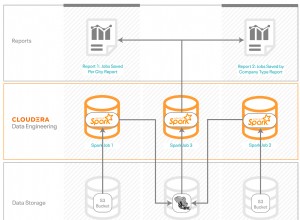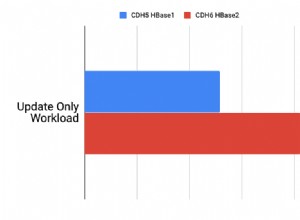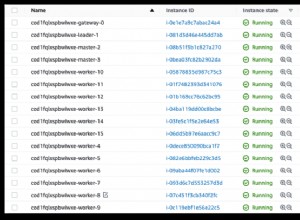Zamiast printjson(rs.initiate()) spróbuj
rs.initiate(
{
_id: "configRS",
configsvr: true,
members: [
{ _id: 0, host: "10.0.1.141:27017" },
{ _id: 1, host: "10.0.2.229:27017" },
{ _id: 2, host: "10.0.3.30:27017" }
]
}
);
rs.status();
while (! db.isMaster().ismaster ) { sleep(1000) }
Wtedy nie musisz dodawać żadnego członka.
W przypadku CSRS używam takiego poradnika:
- hosts: config
tasks:
- name: Compose variables
set_fact:
rs_initiate: |
{% set members = [] %}
{% for host in groups['config'] | sort %}
{% set m = {'_id': loop.index0 } %}
{% set _ = m.update({'host': host + '.' + ansible_domain + ':' + ports.config | string }) %}
{% set _ = members.append(m) %}
{% endfor %}
{% set init = {'_id': replica_set.conf} %}
{% set _ = init.update({'members': members}) %}
{% set _ = init.update({'configsvr': true}) %}
{{ init }}
rs_members: |
{% set members = [] %}
{% for host in groups['config'] | sort %}
{% set _ = members.append(host + '.' + ansible_domain + ':' + ports.config | string) %}
{% endfor %}
{{ members }}
replicaSetURI: "mongodb://{{ groups['config'] | product([ports.config]) | map('join', ':') | join(',') }}/admin?authSource=admin&replicaSet={{ replica_set.conf }}"
- name: Check if Config Replicaset is initiated
shell:
cmd: "/usr/bin/mongo --norc --quiet localhost:{{ ports.config }}"
executable: /bin/bash
stdin: "rs.status().codeName"
register: result
changed_when: false
check_mode: no
- set_fact:
# Needed to ensure that the Config Server Replica Set (CSRS) is initiated only once
rs: |
{% set i = (result.stdout == 'NotYetInitialized') %}
{% for host in ansible_play_hosts %}
{% set i = i and (hostvars[host].result.stdout == 'NotYetInitialized') %}
{% endfor %}
{{ {'NotYetInitialized': i} }}
- name: Initiate Config Replicaset
shell:
cmd: "/usr/bin/mongo --norc --quiet localhost:{{ ports.config }}"
executable: /bin/bash
stdin: |
var i = rs.initiate({{ rs_initiate | to_json }})
if (i.ok != 1) print(i.errmsg)
var _ = rs.status()
while (! db.isMaster().ismaster ) sleep(1000)
rs.status().members.map(x => x.name)
if (i.ok == 1) {print(rs.status().ok)} else {print(0)}
register: ret
failed_when: ret.stdout_lines | last != "1"
when: rs.NotYetInitialized and inventory_hostname_short == groups['config'] | sort | first)
- debug:
msg: "{{ ret.stdout_lines }}"
when: not ansible_check_mode and rs.NotYetInitialized and inventory_hostname_short == (groups['config'] | sort | first) and ret.stdout != ''
Aby dodać hosty do istniejącego CSRS, używam tego:
- hosts: config
tasks:
- meta: end_play
when: ansible_check_mode or rs.NotYetInitialized | default(false)
- name: Check current Config Server Replica Set members
shell:
cmd: "/usr/bin/mongo -u admin -p {{ password.admin }} --authenticationDatabase admin --norc --quiet localhost:{{ ports.config }}"
executable: /bin/bash
stdin: "rs.status().members.map(x => x.name)"
register: result
changed_when: false
when: inventory_hostname_short == (groups['config'] | sort | first)
- set_fact:
current_members: "{{ result.stdout | from_json }}"
when: inventory_hostname_short == (groups['config'] | sort | first)
- name: Add host to Config Server Replica Set
shell:
cmd: "/usr/bin/mongo -u admin -p {{ password.admin }} --authenticationDatabase admin --norc --quiet localhost:{{ ports.config }}"
executable: /bin/bash
stdin: "rs.add('{{ item }}')"
when: inventory_hostname_short == (groups['config'] | sort | first)
loop: "{{ rs_members | difference(current_members) | sort }}"
register: ret
failed_when: ret.stdout != ""
Użytkownicy, których tworzę za pomocą tego poradnika
- hosts: application
tasks:
- name: Check if authentication is enabled
shell:
cmd: "/usr/bin/mongo -u admin -p {{ password.admin }} --authenticationDatabase admin --norc --quiet localhost:{{ ports.router }}"
executable: /bin/bash
stdin: exit
register: authenticate
failed_when: false
changed_when: false
check_mode: no
when: inventory_hostname_short == (groups['application'] | sort | first)
- name: Create admin user
shell:
cmd: "/usr/bin/mongo {{ (authenticate.rc == 0) | ternary('-u admin -p ' + password.admin + ' --authenticationDatabase admin', '') }} --norc --quiet localhost:{{ ports.router }}"
executable: /bin/bash
stdin: |
const admin = db.getSiblingDB("admin")
{% if authenticate.rc != 0 %}
admin.createUser({ user: "admin", pwd: "{{ password.admin }}", roles: ["root"] })
var _ = admin.auth("admin", "{{ password.admin }}")
{% endif %}
// Create more users if needed
when: inventory_hostname_short == (groups['application'] | sort | first)
register: ret_createUser
changed_when: ret_createUser.stdout != ''
- debug:
msg: "{{ ret_createUser.stdout.split('\n') }}"
when: not ansible_check_mode and inventory_hostname_short == (groups['application'] | sort | first) and ret_createUser.stdout != ''




